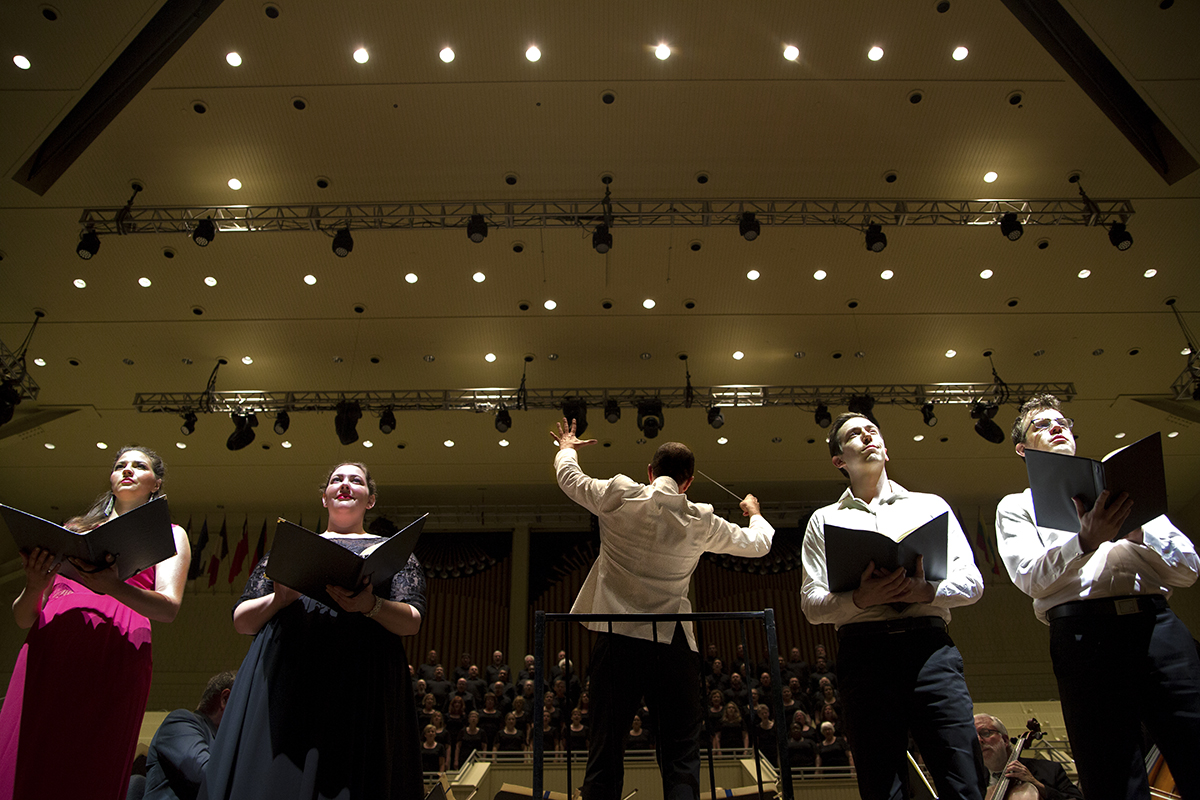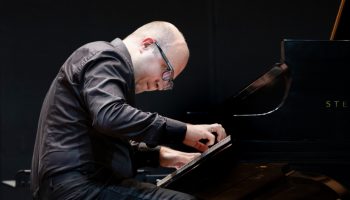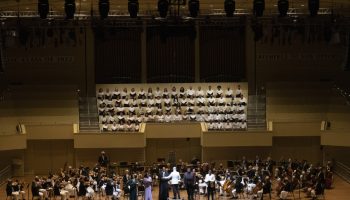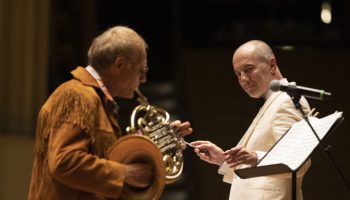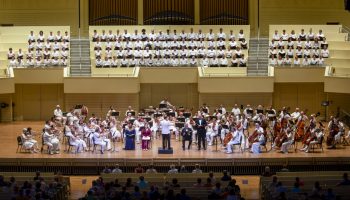Invention never sounds better than the Ninth.
Topping off the opening week’s theme of “Invention” in the Amphitheater Saturday night was one of classical music’s most significant ones, Beethoven’s Symphony No. 9, “Choral.” In the 1820s, nearing the end of a life that saw him redefine musical genres and upend traditions, Beethoven essentially invented the idea that the symphonic realm needn’t exclude the human voice. In the Ninth, he introduced singers, both solo and choir, to give utterance to Schiller’s “Ode to Joy.” But like any invention, it was the fire he built from that spark of inspiration that made it transformational and still beloved today.
Speaking of beloved, the many fans of the venerable Chautauqua Symphony Orchestra found out in January that its musicians agreed to a new contract with Chautauqua Institution. After several months of negotiations and many sharply worded — to put it delicately — notes of support, it is very good to have closed that chapter.
This concert marked only the second time the CSO and its able director Rossen Milanov performed at the new (still not used to saying that!) Amp. They are still feeling out the hall, as is the audience. To my ears, the only significant issue remains that, at forte, the full orchestra overwhelms the strings, especially the violins. Saturday brought another element to the ongoing assessment of the acoustics: a chorus, with the splendid Columbus Symphony Chorus doing the honors. Here the result was unequivocal, with the Amp displaying clarity and blend across each register. The solo singers, soprano Helen Hassinger, mezzo Megan Quick, tenor Jonas Hacker and bass David Crawford, projected with ease.
Milanov opted for a genteel interpretation of the Ninth. He emphasized the beauty of the music, upon which conductors sometimes do trample for the sake of relating its turbulent journey from darkness and chaos to light and enlightenment. I would have liked more energy in sections, but Milanov’s refined approach had many merits (and there is no denying the drama is already there in the score). He elicited exquisite playing by the woodwinds and horns and cultivated a sweetness of tone in the strings when they were in the foreground. The highlight was the Adagio.
That is, other than the epic last movement, which Milanov measured well, from tempo to balance between instruments and chorus. I was not a fan of having the soloists swiftly march from chairs at the far ends of the stage to the center to sing, especially when their parts arrived before they did. But when they did, they were fine, with Crawford’s buoyant delivery and rounded tone particularly attractive. I cannot have been the only audience member who got goosebumps anytime the chorus, directed by Ron Jenkins and performing without music, entered with power and precision.
Andrew Druckenbrod is a lecturer in the Department of Music at the University of Pittsburgh and the former classical music critic of the Pittsburgh Post-Gazette.

